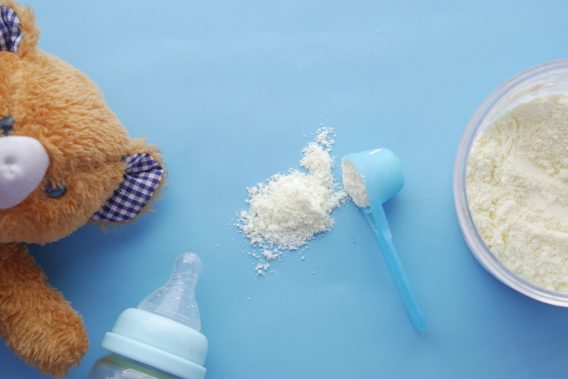FTC Investigating Baby Formula Makers for WIC Contract Collusion
Editors carefully fact-check all Drugwatch content for accuracy and quality.
Drugwatch has a stringent fact-checking process. It starts with our strict sourcing guidelines.
We only gather information from credible sources. This includes peer-reviewed medical journals, reputable media outlets, government reports, court records and interviews with qualified experts.

The Federal Trade Commission is investigating potential collusion among baby formula makers in bidding for lucrative state contracts. The FTC’s investigation focuses on contracts with the federal Women, Infants and Children supplemental nutrition program, which provides baby formula at no cost to low-income families.
Documents posted to the FTC website show the agency is seeking information from leading formula maker Abbott Laboratories regarding bidding practices.
“Such information may also be needed to evaluate, for example, whether WIC contract holders had incentives not to bid against each other and which specific WIC bidding opportunities may have been tainted by coordination or collusion,” the FTC wrote in an order posted to its site.
WIC Contracts Lucrative for Manufacturers
There are 70 WIC contracts serving 50 states; Washington, D.C.; six U.S. territories and 14 Native American tribal organizations, according to the United States Department of Agriculture, which oversees the WIC program.
- Abbott Laboratories, maker of Similac, holds an overwhelming majority with 43 WIC contracts.
- Mead Johnson, a subsidiary of Reckitt and maker of Enfamil, holds 15 contracts.
- Nestlé Gerber, maker of Gerber Good Start and Gerber Good Start SoothePro, holds 12 contracts, mostly with tribal organizations.
All three manufacturers have faced baby formula recalls in the past year because of contamination issues. Some parents have filed baby formula lawsuits over serious intestinal issues in premature babies caused by some cow’s-milk infant formula.
“WIC contracts create a lucrative ‘spillover effect’ on the manufacturer’s non-WIC sales of infant formula,” the FTC wrote in an order denying a petition from Abbott to limit its investigation.
“Although the boost in non-WIC sales motivates manufacturers to win WIC contracts, it may also create incentives to engage in collusive or coordinated market allocation, whereby incumbent WIC contract holders agree not to bid against each other so that they can continue enjoying dominant positions in non-WIC markets in their respective states,” the order said.
Baby Formula Collusion Investigation Ongoing
The FTC sent a civil investigative demand to Abbott Laboratories in late January, requesting the company produce information about its WIC contracts and non-WIC business dating back to 2016, according to the FTC. The company later petitioned to limit the scope of the investigation but was denied.
“Abbott is unaware of any factual basis to support the WIC-related investigation, and staff have not identified any reason to believe that Abbott or any of its competitors have coordinated or colluded regarding any WIC contract,” Abbott wrote in its petition in April.
While there is no information on the FTC website regarding its investigation into other WIC contract holders, Nestlé Gerber confirmed to Reuters the FTC had also sought information from it.
“We, like other companies, received a civil investigative demand related to the WIC contract bidding process and have responded to the FTC,” a spokesperson told Reuters.
Mead Johnson’s parent company, Reckitt, told The Wall Street Journal it can’t comment on specific government investigations, but said it complies with regulatory and enforcement agency requests it receives as a matter of principle.